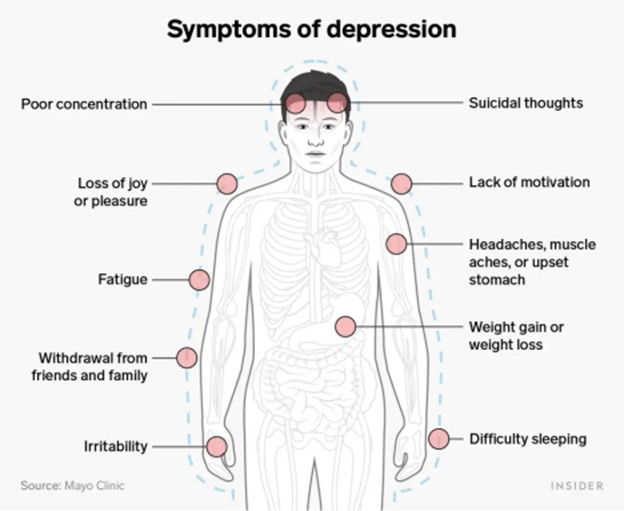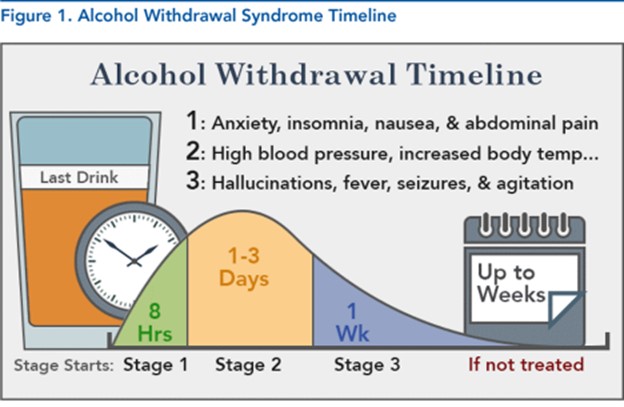A nurse is caring for a client who reports acute, moderate anxiety. Which of the following is the priority nursing action?
Instruct the client to remember past coping mechanisms.
Provide a diverting activity.
Encourage verbalization of feelings.
Remain with the client.
The Correct Answer is D
By remaining with the client, the nurse provides a sense of support and security. This presence can help alleviate the client's anxiety and provide reassurance. It also ensures that the nurse is available to assess the client's condition, offer therapeutic communication, and intervene if the anxiety escalates or the client becomes overwhelmed.
While the other options are also beneficial interventions for managing anxiety, they are not the priority in this situation. Instructing the client to remember past coping mechanisms (Option A) can be helpful, but the immediate presence of the nurse is more important to provide immediate support.
Providing a diverting activity (Option B) can be beneficial to distract the client from their anxiety, but it does not address the underlying anxiety or provide direct support.
Encouraging verbalization of feelings (Option C) is important for therapeutic communication, but it may not be the initial priority when the client is experiencing acute anxiety.
Nursing Test Bank
Naxlex Comprehensive Predictor Exams
Related Questions
Correct Answer is ["A","B","C","D"]
Explanation
When caring for an adolescent experiencing indications of depression, the nurse should expect the following findings:
A- Irritability: Depression can manifest as increased irritability or anger, especially in adolescents. They may become easily annoyed or frustrated.
B- Insomnia: Sleep disturbances are common in depression. Adolescents may experience difficulty falling asleep, staying asleep, or have restless and disturbed sleep.
C- Chronic pain: Depression can be associated with physical symptoms, including chronic pain. Adolescents may complain of headaches, stomachaches, or other unexplained physical discomfort.
D- Low self-esteem: Depression often involves feelings of worthlessness, guilt, and low self-esteem. Adolescents may have negative thoughts about themselves, feel inadequate, or have a distorted self-perception.
Incorrect:
E- Euphoria, on the other hand, is not a typical finding in depression. It refers to an intense state of happiness or excitement, which is not consistent with the overall mood of depression.

Correct Answer is A
Explanation
Anxiety and diaphoresis: Alcohol withdrawal commonly presents with symptoms of anxiety, restlessness, and excessive sweating (diaphoresis). These symptoms are due to the central nervous system's hyperactivity caused by the sudden cessation of alcohol intake.
Incorrect:
B- Muscle aches and chills: Muscle aches and chills are not typical manifestations of alcohol withdrawal. These symptoms are more commonly associated with opioid withdrawal rather than alcohol withdrawal.
C- Fatigue and depression: Fatigue and depression are common symptoms during alcohol withdrawal. The client may feel tired, lack energy, and experience a low mood due to the neurochemical imbalances that occur during withdrawal.
D- Arrhythmia and respiratory depression: While alcohol withdrawal can lead to some cardiovascular and respiratory symptoms, such as increased heart rate and blood pressure, severe arrhythmia and respiratory depression are not typical findings. These more severe symptoms may indicate a more severe withdrawal syndrome or coexisting medical conditions that require immediate medical attention.

Whether you are a student looking to ace your exams or a practicing nurse seeking to enhance your expertise , our nursing education contents will empower you with the confidence and competence to make a difference in the lives of patients and become a respected leader in the healthcare field.
Visit Naxlex, invest in your future and unlock endless possibilities with our unparalleled nursing education contents today
Report Wrong Answer on the Current Question
Do you disagree with the answer? If yes, what is your expected answer? Explain.
Kindly be descriptive with the issue you are facing.
